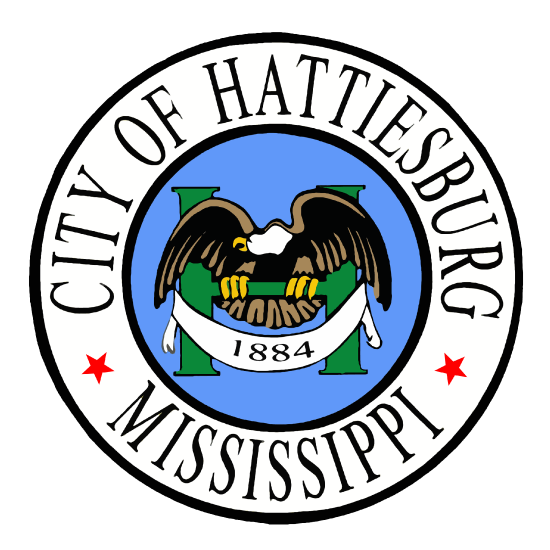Hattiesburg, Mississippi – On Tuesday, November 3, the Hattiesburg City Council passed legislation establishing a Police Citizen Review Board that will serve as a liaison between the community and the Hattiesburg Police Department, with a focus on policies and procedures.
This board will consist of nine community members who will provide feedback and recommendations to the Chief of Police as it is related to allegations of critical incidents. The board will also provide perspective and feedback regarding procedures, training, programs and standards.
The idea of the Police Review Board was brought to the council as a suggestion by Police Chief Anthony Parker and the administration in July.
“Communication and transparency are paramount to fostering trust between law enforcement and the community,” said Mayor Toby Barker. “This Citizen Review Board creates an effective mechanism for residents and the Hattiesburg Police Department to open and sustain productive dialogue, share information and ultimately, build a safer community.”
##
Frequently Asked Questions
What is the Police Citizen Review Board?
The Police Citizen Review Board will serve as a liaison between the community and the police department and will focus primarily on policies and procedures.
It will consist of nine (9) community members that provide feedback and recommendations to the Chief of Police as it is related to allegations of critical incidents. The board will also provide perspective and feedback regarding procedures, training, programs and standards.
What does the board review?
The board will review policy and procedures related to allegations of critical incidents.
What will the board not review?
The board will not be involved in any recommendation or appeal related to the disciplinary action of officers or personnel.
An incident may be reviewed for the purpose of considering any changes, etc., to the policies and procedures used in the incident going forward —only after the Chief has made his decision and when any appeal time to the Civil Service Commission has passed.
Why can’t this board subpoena or investigate complaints?
As outlined in MS Code, Section 21-17-5, the City of Hattiesburg does not have the legal authority to create an independent board with subpoena or investigative power without specific statutory authority from the Mississippi Code.
What authority does the board have?
The board may provide recommendations to the Chief of Police regarding the needs and the expectations of the community as it relates to the Hattiesburg Police Department. They may also provide community members with information about policies and procedures.
Who is on the board?
The board is comprised of nine (9) community members who represent the diversity —in race, age, background, life experience and ward — of the City of Hattiesburg.
What is considered a critical incident?
A critical incident is an alleged officer-involved incident of false arrest, false imprisonment, excessive use of force, serious bodily injury or death.
Will the meetings be open to the public?
Yes. Meetings of the board shall be held in compliance with the Mississippi Open Meetings Act. There may be occasions when the board will go into executive session as permitted by the Open Meetings Act in certain defined circumstances, but it is anticipated that those circumstances will be rare.
How or what authority allows for the creation of this board?
Per the Mississippi Constitution, municipalities may appoint committees of citizens or boards to consider feedback from citizens, gather information and make recommendations to governing authorities.
How is this different than the Civil Service Commission related to both the Hattiesburg Police & Fire Departments?
The Civil Service Commission, as defined by MS Code Section 21-31-9, makes rules and regulations and also provides in detail the manner of conducting examinations, appointments, promotions and discharges for both the Hattiesburg Police Department and the Hattiesburg Fire Department.
The Mississippi Supreme Court has also held that full time, sworn employees have legal standing to request an investigation by the Commission. By statute, the Commission has the power to investigate, subpoena and conduct hearings.
In contrast, the Police Citizen Review Board does not have these same responsibilities due to no statutory authority giving a city the power to create such a board with that kind of power.
Does the department operate by any additional third-party reviews?
In March 1998, the Hattiesburg Police Department became the first law enforcement agency in the state of Mississippi to become nationally accredited through the Commission on Accreditation for Law Enforcement Agencies (CALEA). Accreditation is an ongoing process of advancement and achievement, as the department must undergo an extensive review process –attesting to continued compliance with 484 standards across policy and procedures, administration, operations and support services– for re-accreditation every three years.
The Hattiesburg Police Department has maintained this accreditation for 22 years, with its most recent compliance review in March 2020.
The department has made a commitment to the accreditation process for a number of reasons, including benefits that may be realized through:
- Improved and more efficient personnel practices through the required implementation and documentation of practices and procedures related to discipline, performance evaluation, promotion and training.
- Increased officer safety through the implementation of safety related standards.
- Reduced likelihood of litigation against an officer or the Department through the implementation of procedures in high liability areas.
- Improvement in the overall efficiency and effectiveness of the Department by requiring the Department to review and assess organization and operations, and compare them to an objective outside standard that is recognized in professional law enforcement circles.


